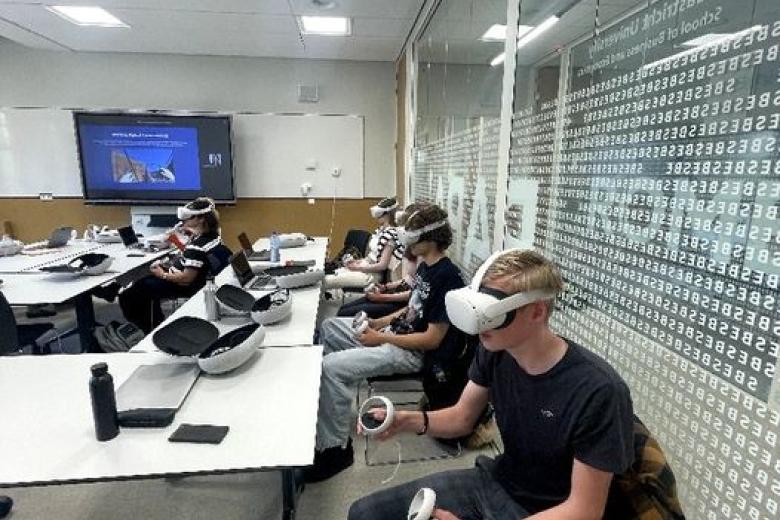EDLAB education innovation projects
Maastricht University continually seeks to improve its Problem-Based Learning educational methodology and develop new and innovative educational concepts.
The EDLAB innovation team initiates, coordinates, and helps to implement education innovation projects and activities on a large spectrum of topics for multiple groups within Maastricht University.
EDLAB projects always have a UM-wide focus. Together with the EDLAB Advisory Board, we define themes in close cooperation with all UM faculties and initiate pilots in all faculties on these themes.
EDLAB also chairs the UM Npuls core team, bringing together knowledge and initiatives contributing to the Npuls National Growth Fund programme. This programme involves all public vocational education training schools, universities of applied sciences, and research universities in the Netherlands. You can learn more about UM's participation in Npuls on UMployee (UM login).
This page showcases our project reports and our education innovation projects.
Project reports
The following project reports are available for download:
Education innovation projects (ordered alphabetically)
Academic Advising
The UM Academic Advising project aims to enhance student success by formulating a vision of student guidance based on collaboration between faculty and students, promoting transparency and personal as well as professional growth.
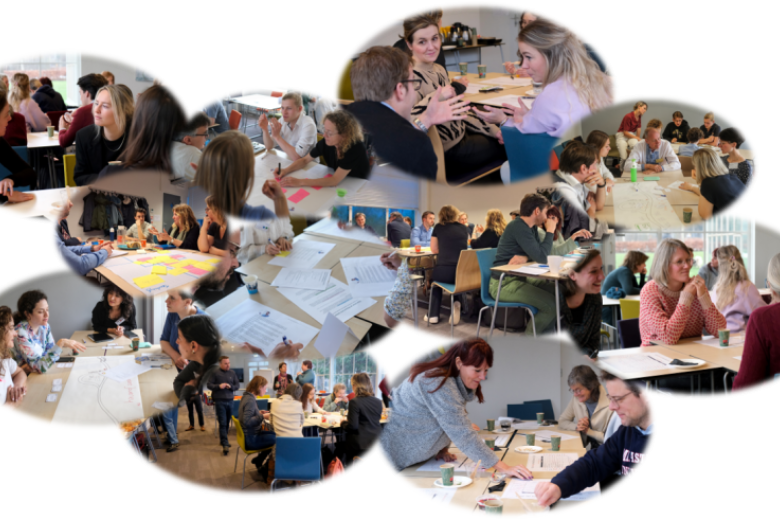
AI & education at UM
The AI & Education at UM webpages aim to assist educators in incorporating AI into their teaching while also safeguarding their education from potential risks.

AI & the future of learning at UM
Starting this September, EDLAB is launching a new project to explore how artificial intelligence (AI) and broader societal shifts will shape the future of learning at Maastricht University.

Assessing the "I" in group work
How can you fairly grade individual contributions in group work? What do you do with free riders? Based on research, EDLAB developed a guide for teaching staff that offers recommendations based on successful practices of assessing individual contributions to group work at UM.

CCCS for support staff
Recognising that support staff play a key role in the educational environment, affecting everything from campus settings to student interactions, EDLAB proposes initiatives to build CCCS awareness across all staff levels.
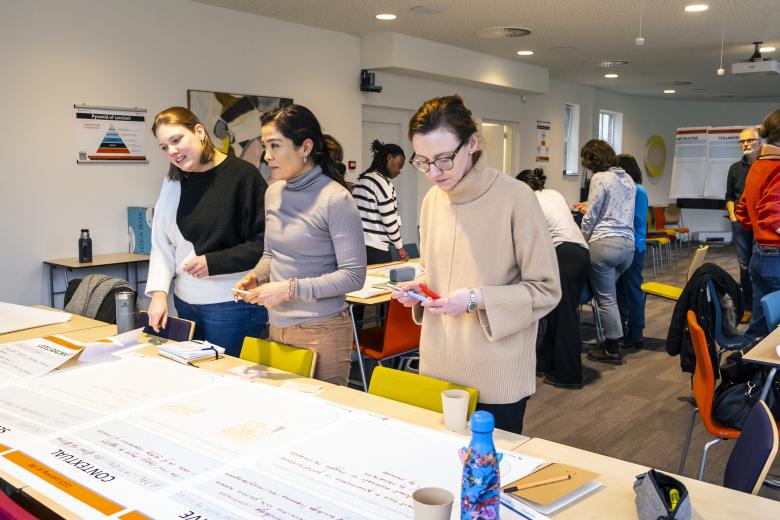
Co-creation: the student voice in education at UM
This project explores ways to integrate the student voice into the educational process. At its core, it examines how co-creation, where students actively collaborate with educators to shape their own learning experience, can expand beyond the common formats of PBL.
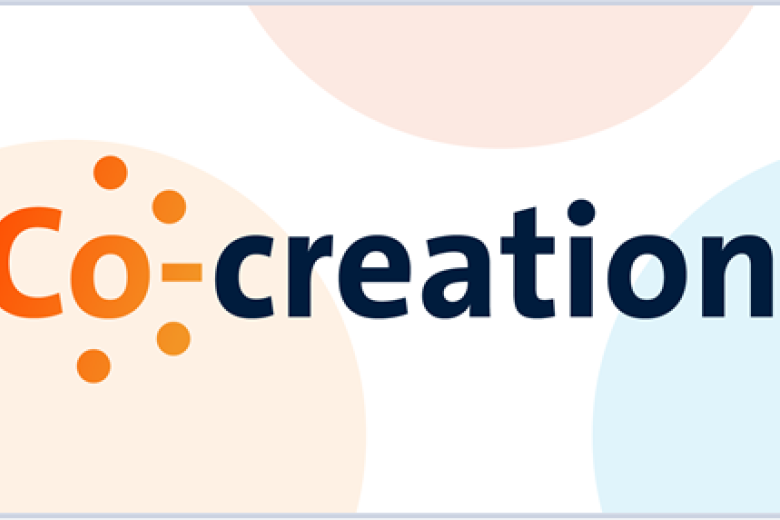
Communities of Practice
A community of practice (CoP) facilitated by EDLAB is a group of people who come together around a topic of interest related to UM’s education, motivated by a desire to learn and grow professionally while also experiencing a sense of belonging and relatedness.
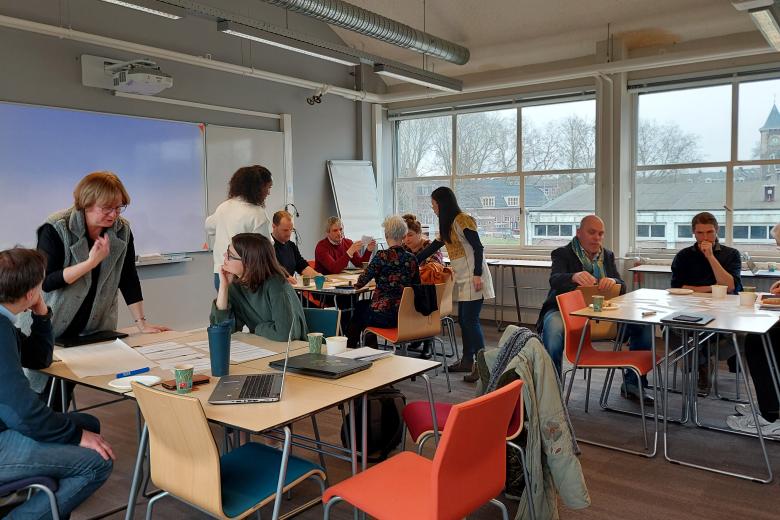
Constructive Alignment
Constructive Alignment (CoAl) is an approach to instructional design that integrates intended learning outcomes or learning objectives, teaching and learning activities, and assessment and feedback methods. Download the handbook.
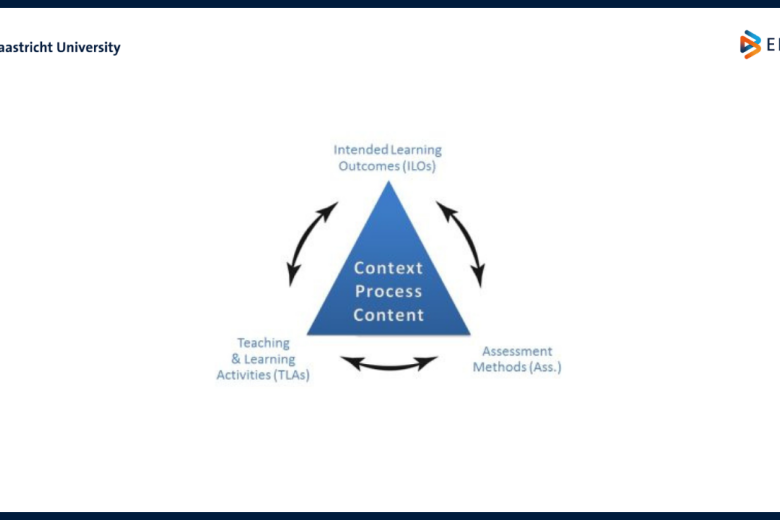
Education That Moves You
Education That Moves You (ETMY) is an EDLAB project that introduced standing desks into the UM problem-based learning tutorials to explore a more dynamic approach to learning.

EDvance report
The EDvance report aims to stimulate UM teaching staff to diversify PBL formats further and be more creative with regard to intended learning outcomes, teaching –and learning activities and assessment.
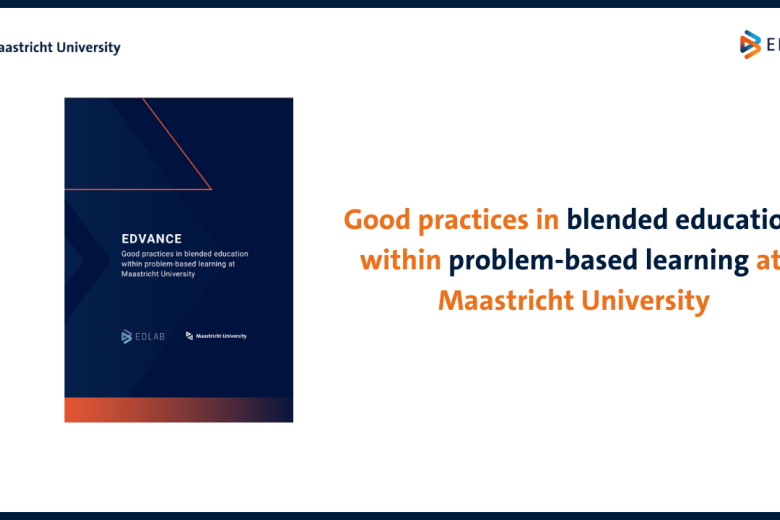
EDview
The EDview research project in 2017-2018 reflected on UM’s educational philosophy and practice around PBL.
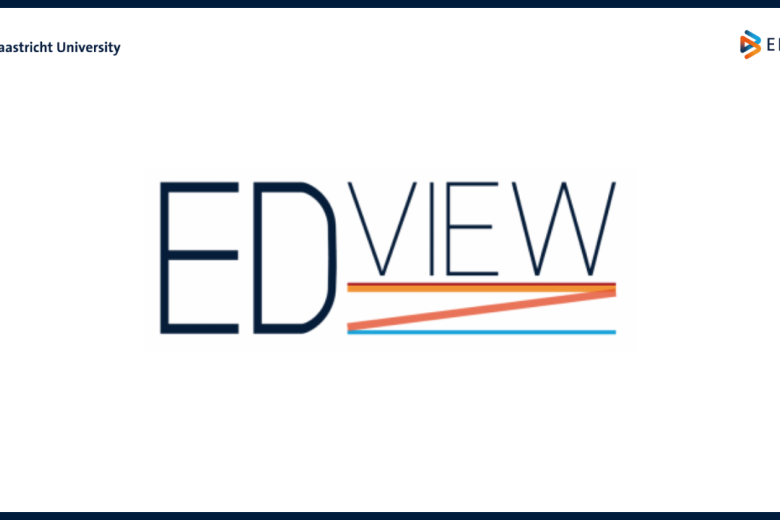
Feedback cubes
Struggling with group dynamics? To stimulate better feedback within a tutorial group, a team of PREMIUM students and the Cube Design Museum designed Feedbackᶾ, a set of 7 cubes that will help make your team feedback session easier, more natural and fun!
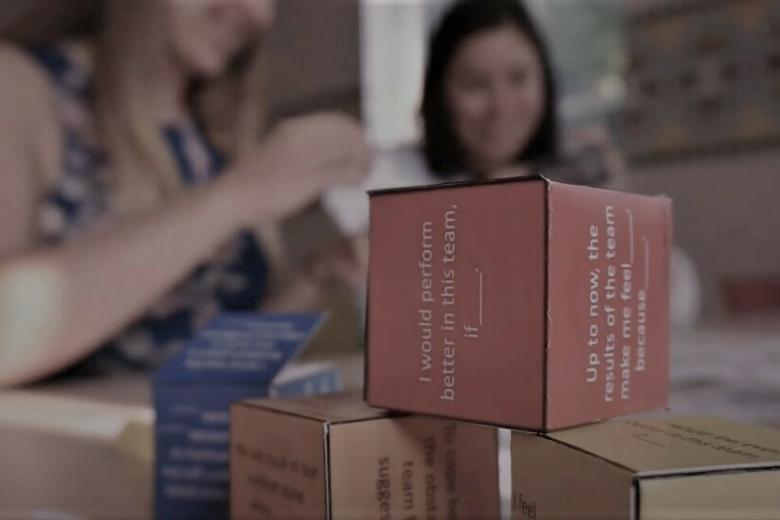
Global Citizenship Education
UNESCO states that Global Citizen Education (GCEd) aims to empower learners of all ages to assume active roles, both locally and globally, in building more peaceful, tolerant, inclusive and secure societies.

Impact of Language Models (such as ChatGPT) on PBL education
This project explores the impact of LLMs on student-centred educational models, such as Problem-Based Learning (PBL), as implemented at Maastricht University.
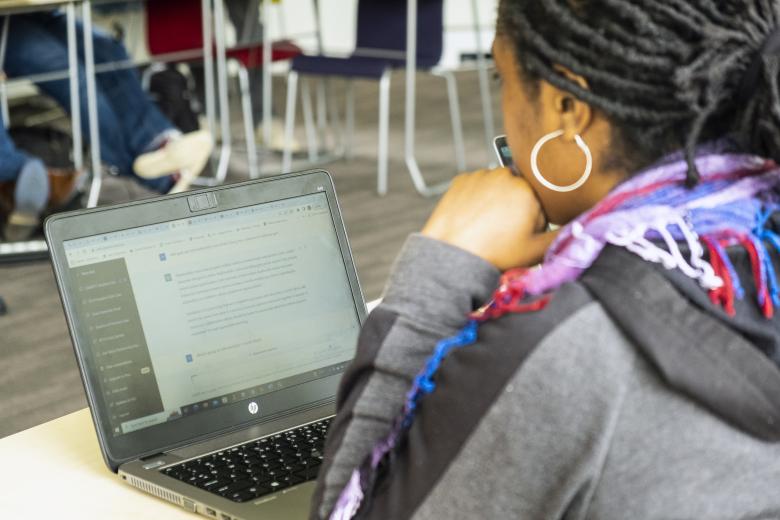
Information Wise
In this project, EDLAB and the University Library designed an evidence-informed programme for information literacy and critical thinking at Maastricht University.
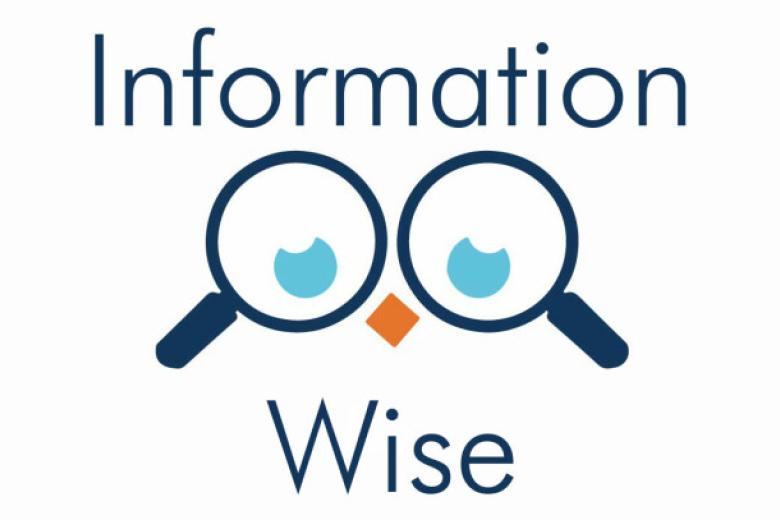
Mend the Gap: exploring the research teaching continuum
The project Mend the Gap – exploring the research teaching continuum investigates the connection between teaching and research activities.
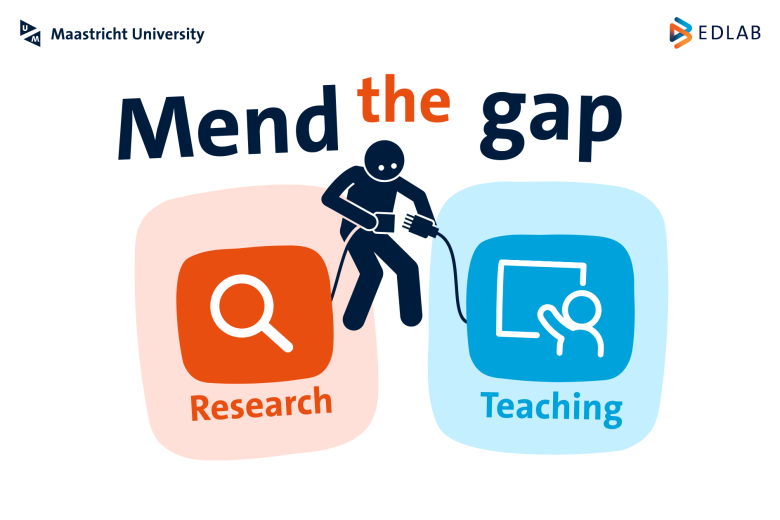
Self-Regulated Learning
Following the successful implementation of Study Smart, this project aims to deepen our understanding of ‘self-regulation’ in learning and build towards a curriculum that supports self-regulated learning at UM.
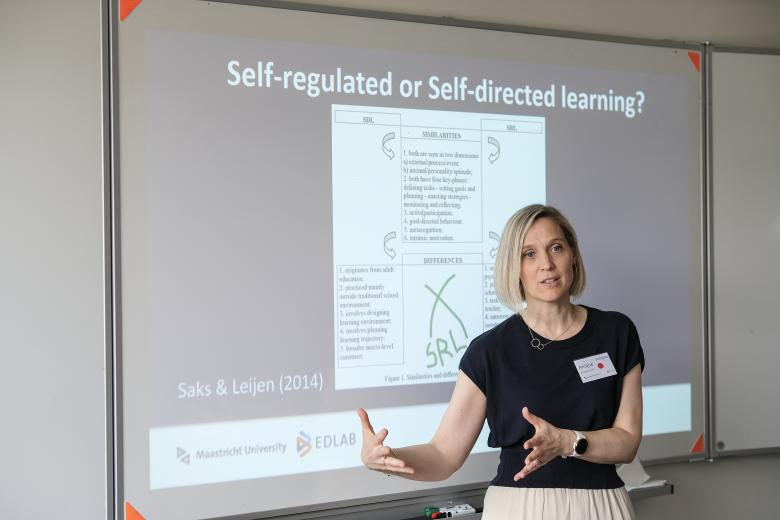
Student engagement
What makes students experience a sense of connection to the university? This project researches the topic of student engagement and develops workshops and training courses to create a stronger learning community.
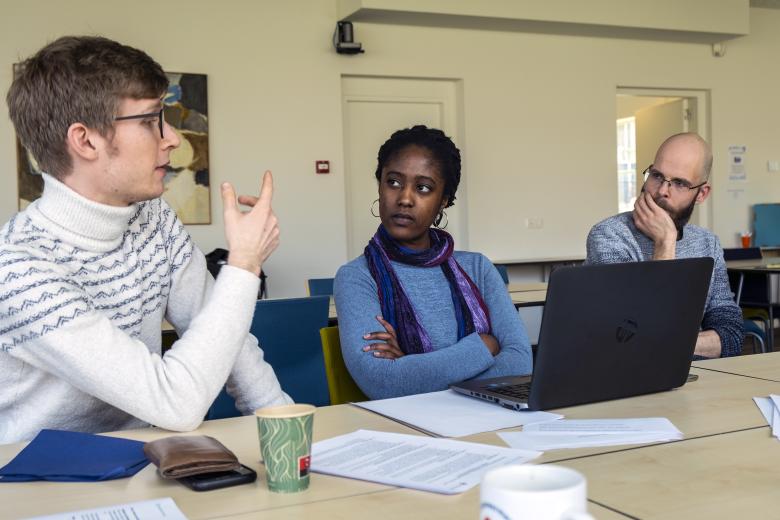
Study Smart
The Study Smart project researched the difficulties that students have in their self-study. It developed evidence-based resources and training courses to improve students' self-study through improved practice, raising awareness, and increasing reflection.
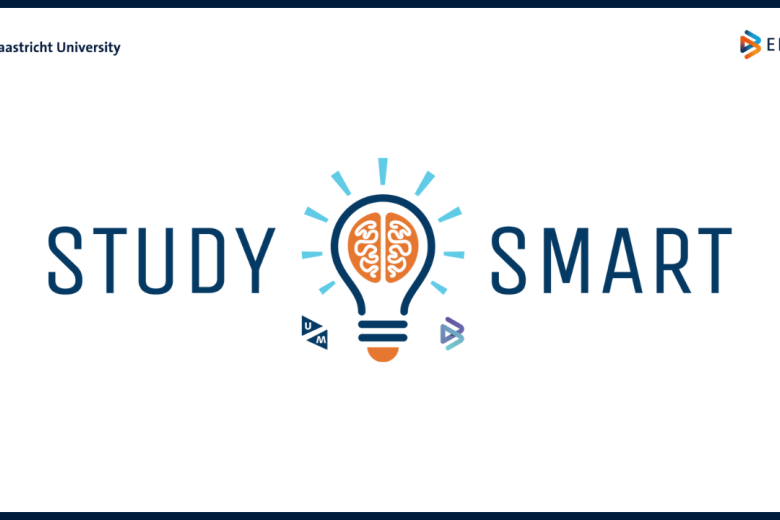
Tutor training in 360°
This project aimed to create 360° tutorial group videos for integration into UM-wide PBL tutor training.
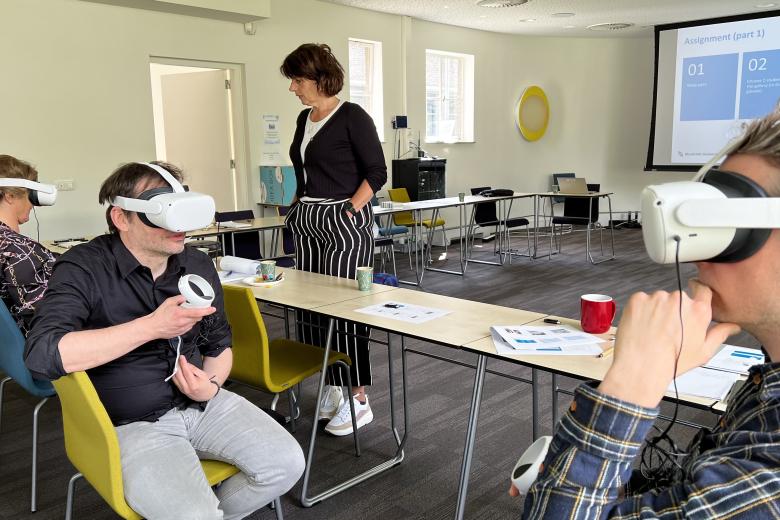
VR-enhanced PBL
EDLAB and DEXLab collaborated on a project to evaluate how VR technology could improve Problem-Based Learning formats and support its core principles. The project resulted in the release of a comprehensive report and practical guidelines for educators in April 2024.
